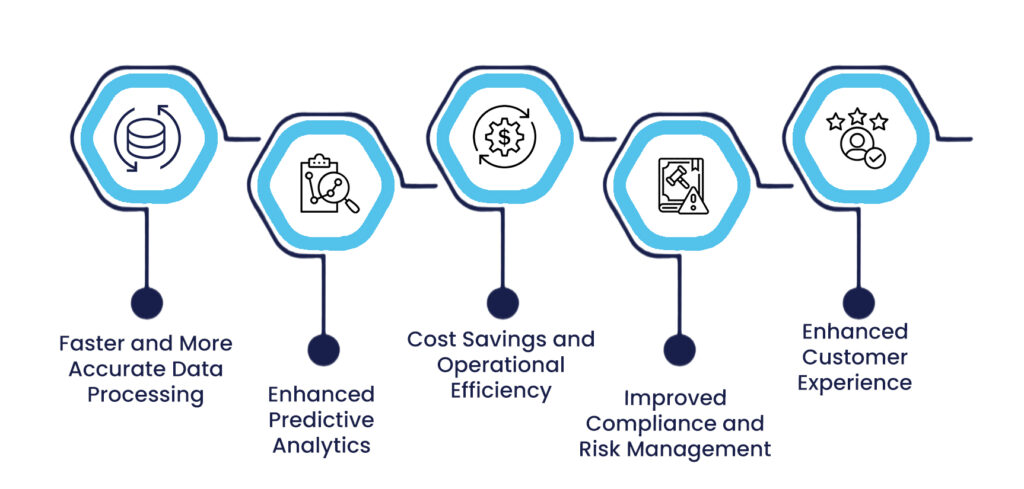The rapid advancement of automation technologies has created unprecedented opportunities for businesses to optimize operations, reduce costs, and improve decision-making. Among these technologies, Robotic Process Automation (RPA) and Artificial Intelligence (AI) stand out as a transformative duo, working in tandem to drive intelligent automation. By integrating Intelligent Automation (AI+RPA), organizations can not only automate routine tasks but also enable data-driven decision-making that enhances efficiency and business performance.
At Charter Global, we help enterprises leverage RPA and AI to achieve seamless automation and smarter business strategies. This article explores how these two technologies complement each other, their benefits, challenges, and key industry applications.

Understanding RPA and AI: How They Work Together
RPA is designed to automate rule-based, repetitive tasks by mimicking human interactions with digital systems. AI, on the other hand, enhances automation by enabling machines to learn from data, recognize patterns, and make informed decisions. When combined, these technologies create intelligent automation, allowing organizations to:
- Automate complex workflows that require decision-making.
- Analyze vast amounts of structured and unstructured data.
- Improve accuracy and efficiency in business processes.
- Enhance customer and employee experiences through intelligent interactions.
According to a report by Deloitte, RPA adoption has surged by 85% among enterprises, with AI integration becoming a key focus for long-term digital transformation.
Key Benefits of RPA and AI in Business Decision-Making
- Faster and More Accurate Data Processing: Manual data processing is prone to human error and inefficiencies. AI-powered RPA bots can extract, process, and analyze data at high speed, reducing errors and improving accuracy in decision-making.
- Enhanced Predictive Analytics: AI-driven automation enables businesses to predict trends, customer behavior, and market dynamics using historical and real-time data. This helps organizations make informed decisions that drive competitive advantage.
- Cost Savings and Operational Efficiency: By automating repetitive tasks and reducing dependency on manual labor, companies can achieve significant cost savings—ranging from 25% to 50%, according to McKinsey & Company. AI-powered RPA also optimizes resource allocation, ensuring that human employees focus on higher-value activities.
- Improved Compliance and Risk Management: Automated systems powered by AI can monitor transactions, flag anomalies, and enforce regulatory compliance with greater accuracy than manual processes. This is especially beneficial in industries like finance, healthcare, and legal services, where compliance is critical.
- Enhanced Customer Experience: AI-driven chatbots and virtual assistants improve customer interactions by providing real-time responses, automating service requests, and personalizing user experiences. Companies that integrate AI into their customer service operations see an average 35% increase in customer satisfaction, according to Forrester.
Challenges in Implementing RPA and AI
Despite their advantages, businesses face several challenges when integrating RPA and AI into their operations:
- Scalability Issues: While RPA bots are excellent for automating repetitive tasks, scaling automation across an enterprise requires advanced AI capabilities, proper infrastructure, and continuous optimization.
- Integration with Legacy Systems: Many organizations still operate on legacy systems that are not AI-compatible. Upgrading these systems to accommodate AI and RPA requires significant investment and strategic planning.
- Workforce Adaptation: Employees need training to work alongside AI-driven automation. A study by PwC highlights that 60% of employees require upskilling to adapt to AI-integrated workplaces.
- Data Security and Ethical Concerns: With automation handling sensitive business data, companies must ensure robust cybersecurity measures and ethical AI usage to prevent data breaches and biased decision-making.
Industry Applications of RPA and AI
- Finance and Banking: AI-driven RPA automates fraud detection, loan processing, and risk assessment, reducing human intervention and improving compliance.
- Healthcare: Intelligent automation enhances patient data management, claims processing, and diagnostic accuracy, leading to better patient outcomes.
- Retail and E-Commerce: AI-powered RPA improves inventory management, personalized recommendations, and supply chain optimization, ensuring smoother operations.
- Manufacturing: Automated predictive maintenance using AI and RPA minimizes downtime, enhances production efficiency, and reduces operational costs.
How Charter Global Can Help
At Charter Global, we specialize in implementing RPA and AI-driven solutions tailored to your business needs. Our team helps enterprises:
- Develop a customized automation roadmap for digital transformation.
- Integrate AI-powered RPA with existing enterprise systems.
- Provide ongoing support and optimization to maximize automation efficiency.
Conclusion
The synergy between RPA and AI is reshaping business decision-making, offering unparalleled efficiency, accuracy, and strategic insights. As businesses increasingly adopt intelligent automation, those who embrace this transformation will gain a competitive edge in the market.
Are you ready to enhance your business processes with AI-powered RPA?
Book a consultation today.
Email us at [email protected] or call us at 770-326-9933.
